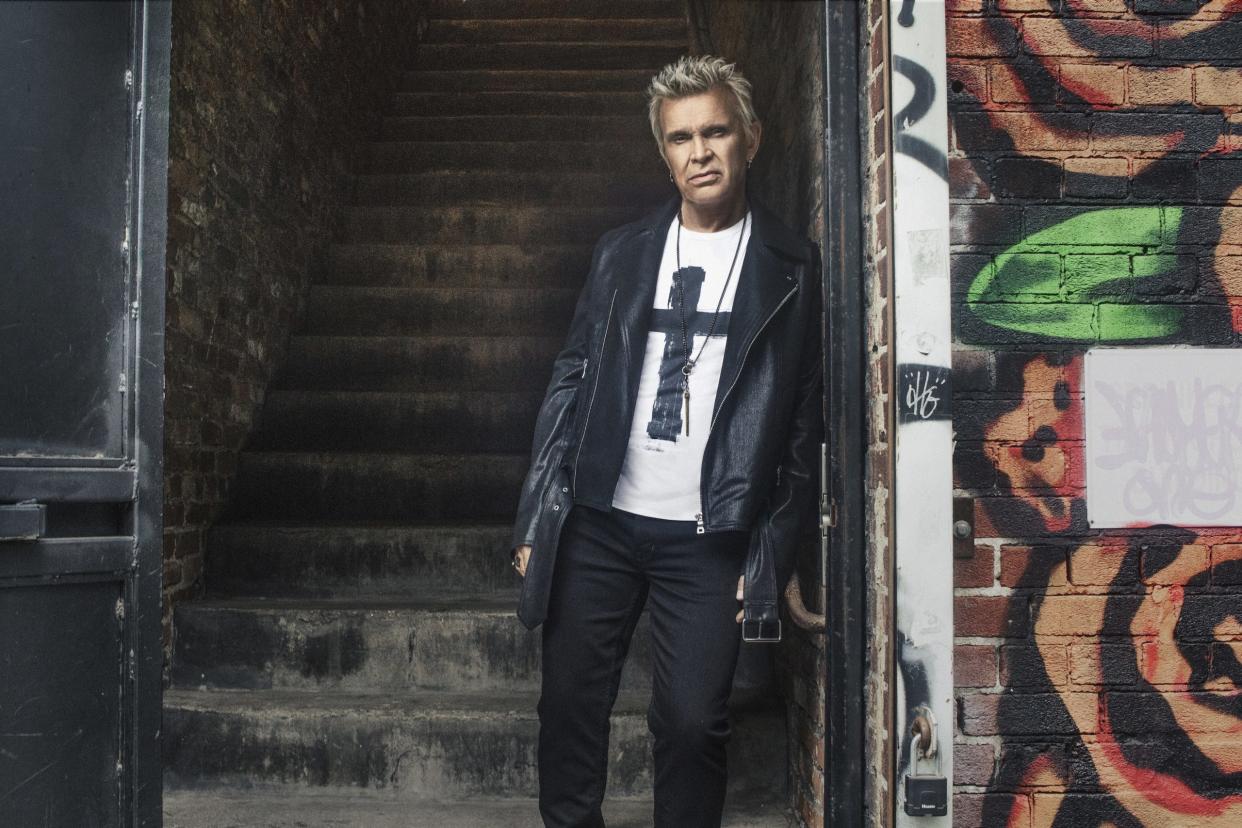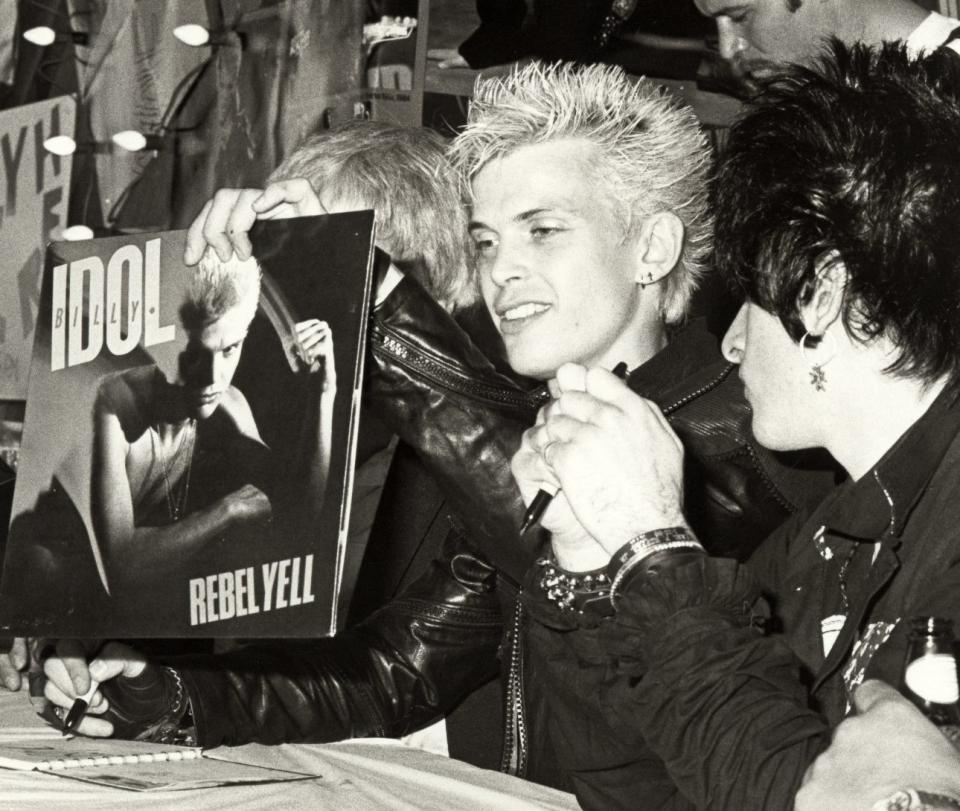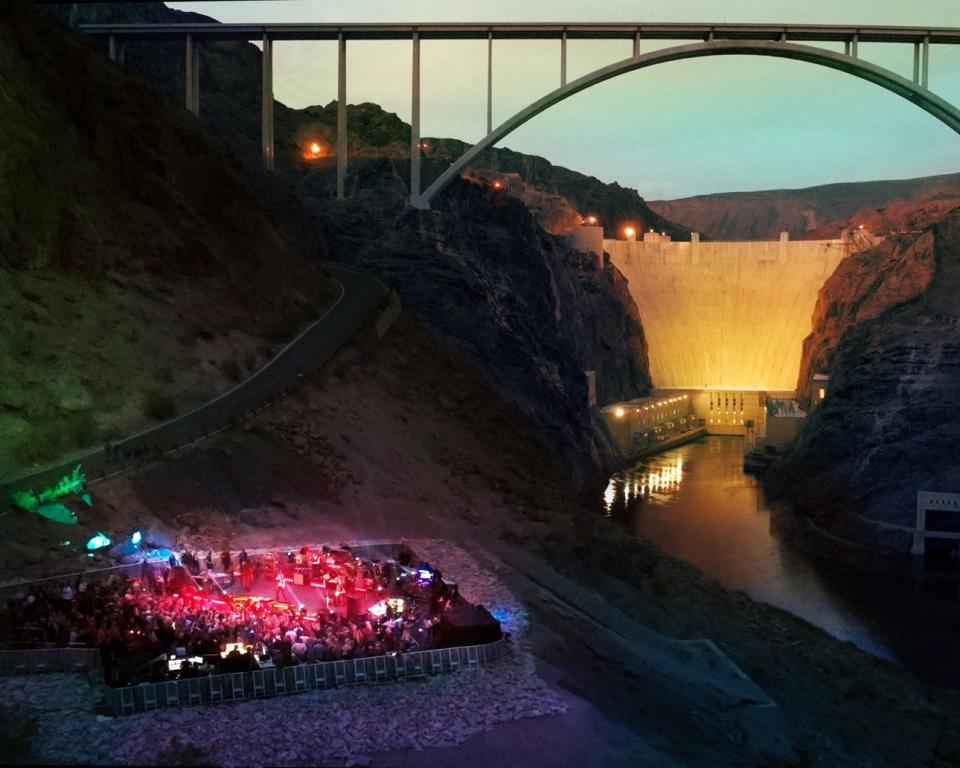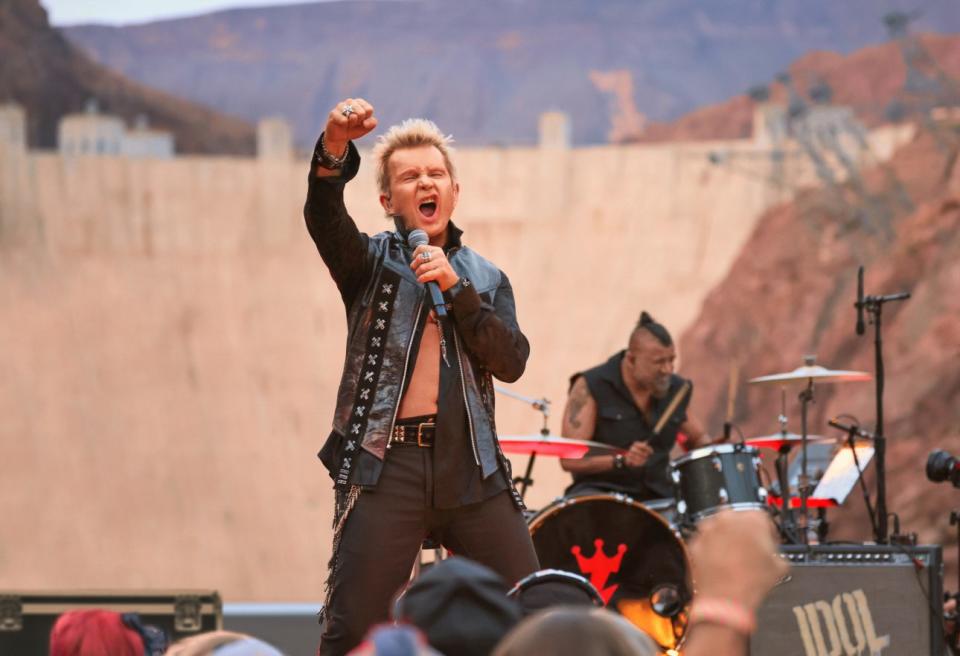That Rebel Sneer: Billy Idol is ‘Still Killer’


The belief that music keeps you young is never truer than in the case of Billy Idol. The current version of the evergreen rock ‘n roller is like a waxwork of the 1976 punk prototype Idol—in the best possible way. Shock of bleached spikes, perpetual sneer (or is it a smirk?), black leather-clad, navel-baring (although a bit less these days)—these are rock ‘n roll cliches for some; but for Idol, they are his signifiers. They are how he is preserved in the mind’s eye of longtime fans and casual listeners alike. Embedded in the dangerous, oversexed bad boy rock ‘n roll package is an irrepressible sense of humor that feels like Idol is making fun of himself over anyone else.
More from Spin:
“Lily-and-Billy, Lily-and-Billy,” he chants softly when he is introduced to me. He follows the chant with a guttural chuckle, “Heh-heh-heh,” which is as disarming as it is charming.

Idol’s visual component, which made him an MTV favorite from the nascence of the aesthetically driven channel, tends to overwhelm his musical output, which is formidable. On an Uber ride in Lisbon this past summer, the driver was playing Idol’s VH1 Storytellers album. Upon arriving at our destination, he insisted we stay in the car and continue rocking out to Idol’s seemingly unending string of smashes. There are 14 of them on that particular album, including three covers.
VH1 Storytellers led to my deep dive into the Idol wormhole. Idol is credited as the songwriter for his most identifiable songs: “Eyes Without a Face,” “Dancing with Myself,” “White Wedding,” “Flesh for Fantasy,” “Rebel Yell,” “Cradle of Love,” and “Catch My Fall,” among many others. A great number of these are co-written with his trusty guitarist, Steve Stevens, and produced by Giorgio Moroder’s right-hand drummer/percussionist, Keith Forsey.
“It was fun coming up with [those songs] because you are dreaming up the landscape of yourself, finding out who you are in the process,” Idol says. “That’s kind of what music is all about. It’s a wild way of finding out about yourself. You’re finding out what sticks.”
And stick it has. Four decades later, “Eyes Without a Face” is viral on social media and is Idol’s top song on Spotify. He remembers that song being paired with the Cars’ “Drive” on the radio in New York, where he was living when it was released. Idol credits the longevity of his songs, in part, to “living in the moment.”
Says Idol, “As you’re doing it, you’re working it out. You’re never thinking about 40 years’ time. Even the new stuff we’re doing now, I’m not thinking, ‘Someone’s going to put this on in 20 years.’ The songs seem to have a staying power and still seem to make sense to people 40 years later. It’s really wild because at the time that you do them, it’s purely about ‘Who am I right now?’”

There was a lot to choose from when Idol was putting together the setlist for Billy Idol – State Line: Live at the Hoover Dam, part documentary but mostly a concert film of his show at the Hoover Dam in April of this year—the first ever at this famed, scenic location.
“We have the Idol classics, but we have new stuff too because life moves on,” says Idol. “I’ve got things to say now, just as much as I did in the ‘80s. You want the combination, and it all somehow works together. This thing that we started dreaming up 47 years ago still has staying power. You could never imagine that. You don’t know what’s going to happen.”
The once-in-a-lifetime concert, attended by a lucky 250 or so fans, shows Idol in prime performance shape—with his shirt on—flanked by Stevens, whose chops have only grown more powerful over the years. Joining Idol for a few songs are the Sex Pistols’ Steve Jones (whom Idol used to follow around as a teenager alongside Siouxsie Sioux as part of the Bromley Contingent, credited with defining punk attitude and style), No Doubt’s Tony Kanal and the Kills’ Alison Mosshart.

Leading up to the concert, Idol acts as documentarian, narrating the history of the Hoover Dam, complete with archival footage. He starts with his signature snarling delivery, which tones down as the film moves forward. Before long, Idol is ready for his side gig as a host on the Discovery Channel. Move over, David Attenborough.
There is some background on Idol himself in the film, but to a much lesser degree. This makes the singular images of his early days and the behind-the-scenes footage of his shows all that much more special. The concert itself took place on a helipad with the Hoover Dam as the backdrop, making for a picturesque setting. “Where we were had three sides, so it held in the sound really brilliant,” says Idol.
The film had a brief theatrical run in mid-November. It is available through Veeps from November 15 to December 7 with additional footage of “Rebel Yell” and “Bitter Taste.” It will be released on DVD/Blu-ray on December 15, just in time for the holidays. The latter formats include an exclusive Q&A with Steve Stevens, an acoustic performance of “To Be a Love,” “Eyes Without a Face,” and “Rebel Yell” at the base of the dam, and a six-panel concert booklet.
“A lot of songs you write on an acoustic guitar, even if they end up being electrified and heavy,” says Idol. “When you strip them back to an acoustic guitar played by Steve Stevens, they’re still killer. It’s a sign of how good the song is. Whatever you do to it, it still holds its own. That’s what’s cool about me and Steve doing these duo things—it reveals a lot about the songs. They still have an effect.”

The point of Billy Idol – State Line: Live at the Hoover Dam wasn’t just about having a cool concert at an iconic location, but also to bring awareness to water conservation, a cause Idol has put his full weight and considerable cool cred behind. Idol isn’t simply paying slacktivist lip service to the cause. He’s joined government officials, including U.S. Secretary of the Interior Deb Haaland on Instagram and Deputy Secretary Beaudreau and Reclamation Commissioner Touton on X (formerly Twitter), to speak about the issue in possibly the funniest, but most effective public service announcements. What makes these appearances of Idol’s impactful is that he is being entirely himself: part icon, part comic, completely committed. It’s not miles away from his natural, side-splitting performance as himself on The Wedding Singer.
A Southern California resident since 1987, unlike most who quietly waste water, Idol attributes living in the area for his involvement in the issue. “If it continues, we won’t have gardens, fountains, anything cooling the climate down,” he says. “It really is a desert without the water that Mulholland brought here.
“When I shampoo my hair, when I soap my body, I turn off the taps and turn them back again to wash it off. I found out the minimum water you need to wash your hands. You only need a little bit. You’re running the tap, and you don’t need to do that. I was experimenting and found out you can do a lot with a lot less. The drought is continuing. Personally, I take it seriously.”
It’s more than a little bizarre to hear Idol, the epitome of rebel rocker, known for his excesses, giving water conservation advice. YouTube played only alcohol commercials in between his videos, which I watched for hours while writing this article. Still, the day after we speak, Idol is turning 68 and he’s a grandfather of two. With water conservation, like any of Idol’s ventures: musician, actor, author, he’s all in and you’re coming along with him.
This year, besides the Hoover Dam concert and ensuant releases, the three-time Grammy nominee celebrated the 41st anniversary of his 1982 debut album with an expanded edition that included his concert at the Roxy from that year, a remix of “White Wedding,” and the option for an immersive audio experience, plus a summer tour. The year kicked off for Idol with a star on the Hollywood Walk of Fame. Next potential landmark: being inducted into the Rock & Roll Hall of Fame.
“It would be incredible,” Idol admits. “It’s a big thank you to the fans in lots of ways. They really believed and hung in through thick and thin. Towards the end of your career or life, you get a chance to say thanks to everybody because somehow or other, they’ve made my life fucking great. They let me live my dreams. That was incredible. What a gift.”
To see our running list of the top 100 greatest rock stars of all time, click here.
